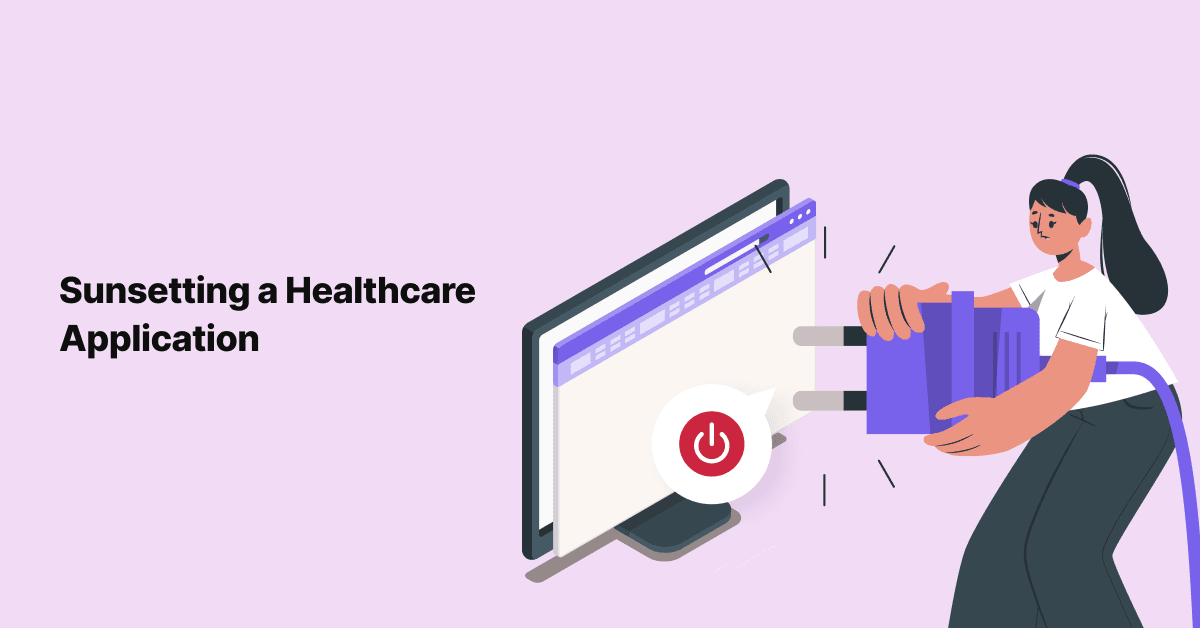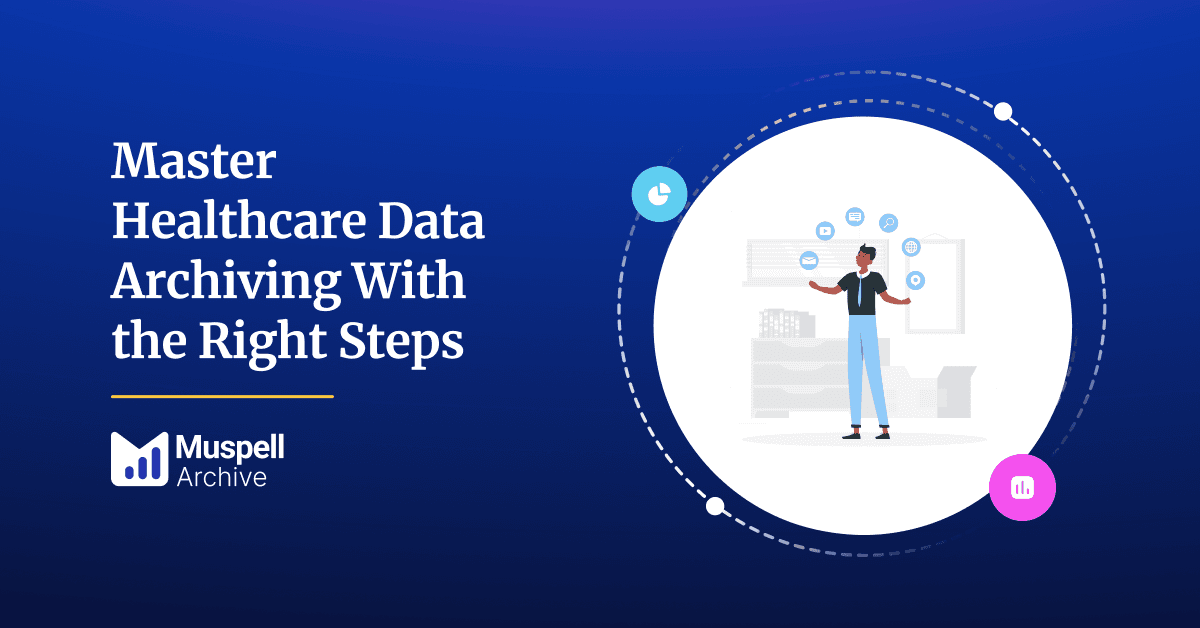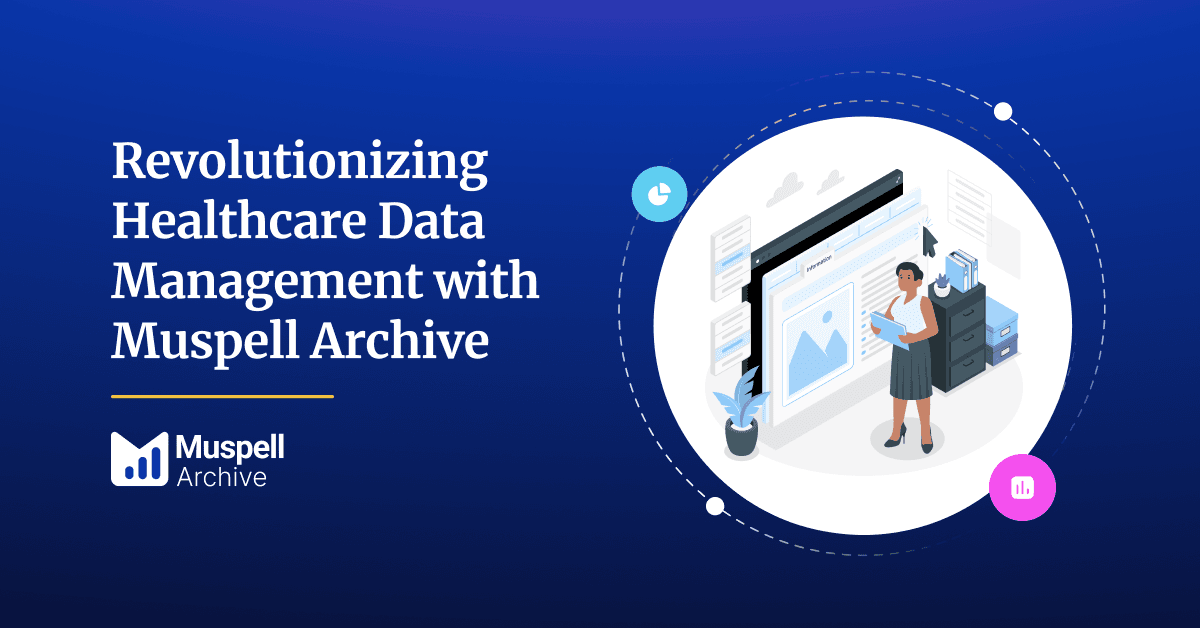
What to Do When Its Time to Sunset Your Healthcare Application
The rapid growth of healthcare has caused the need for efficient management of data and applications to grow …

Effective patient data management stands as a cornerstone for providing optimal care and streamlining operational processes. As technology continues to advance, healthcare data archiving emerges as a pivotal practice, ensuring the accessibility, security, and compliance of critical patient information.
Crafting Robust Data Retention Policies
The journey towards effective healthcare data archiving begins with well-defined data retention policies. Explore the intricacies of categorizing and classifying data based on its significance, regulatory requirements, and operational needs. This section emphasizes the importance of collaborating with legal and compliance experts to ensure that your policies align seamlessly with industry regulations. By establishing a robust framework for data retention, healthcare institutions pave the way for compliant, organized, and streamlined data management practices.
Efficient and Cost-Effective Archiving
Efficiency and cost-effectiveness are at the core of successful healthcare data archiving. Delve into strategies that optimize resources while maintaining the integrity and accessibility of archived data. Discuss the implementation of tiered storage systems, data compression techniques, and automated archival processes to streamline operations. By assembling a multidisciplinary team of IT professionals, financial analysts, and operational strategists, healthcare institutions can strike a balance between the need for efficiency and budget constraints, ensuring a sustainable and cost-effective archiving solution.
Selecting Tailored Archival Solutions
Navigating the myriad options in the data archiving landscape requires a strategic approach to solution selection. This section provides actionable tips for decision-makers, emphasizing the importance of aligning the chosen archival solution with specific healthcare needs. Explore considerations such as scalability to accommodate evolving data volumes, interoperability with existing healthcare systems, and robust security features. Engage stakeholders, including IT experts, healthcare administrators, and end-users, in the decision-making process to ensure that the selected solution not only meets current requirements but is also poised to adapt to future challenges and technological advancements.
Data Classification and Retention Policies
Implement a robust data classification system to categorize healthcare data based on its sensitivity and importance. Establish clear data retention policies that dictate how long each type of data should be archived. Regularly review and update these policies to align with changing regulations and business needs. This helps in optimizing storage space and streamlining the archiving process.
Redundancy and Disaster Recovery
Establish redundant systems and robust disaster recovery plans to safeguard against data loss due to unforeseen events such as hardware failures, natural disasters, or cyber-attacks. Maintain multiple backup copies of archived data in geographically diverse locations to ensure data availability in case of emergencies. Regularly test and update disaster recovery procedures to guarantee their effectiveness.
Security and Encryption
Prioritize the security of archived healthcare data by implementing encryption mechanisms. Encrypt data both during transmission and while it is stored to protect it from unauthorized access. Utilize access controls and authentication measures to ensure that only authorized personnel can retrieve or modify archived information. Regularly audit and monitor access logs to detect and respond to any potential security breaches promptly.
Regular Audits and Monitoring
Conduct regular audits of the healthcare data archiving system to ensure compliance, identify potential vulnerabilities, and monitor access patterns. Implement a robust monitoring system that tracks user activities and system behaviors. Regularly review these logs to detect any anomalies or unauthorized access promptly. Proactive monitoring helps identify and address issues before they escalate, contributing to the overall security and reliability of the healthcare data archiving infrastructure.
Conclusion
Effective healthcare data archiving is a multifaceted endeavor that demands meticulous attention to compliance, security, and adaptability. Adhering to healthcare regulations, particularly the stringent provisions of acts like HIPAA, lays the foundation for ethical and lawful data management. The implementation of clear data classification and retention policies ensures that archived information is not only securely stored but also optimally managed throughout its lifecycle.
Join over 3,200 subscribers and keep up-to-date with the latest innovations & best practices in Healthcare IT.

The rapid growth of healthcare has caused the need for efficient management of data and applications to grow …

Information blocking was brought into action to ensure the patient’s right to access their health data was …

Master Patient Indexes (MPIs) are the bedrock of patient data management. MPI systems, and the Medical Record …